#Tayi Tibble
Text
A poem of girlhood and after by Indigenous New Zealander Tayi Tibble, whose second collection, Rangikura, comes out in America today. In the dictionary of Māori language, hōmiromiro is defined as “a white-breasted North Island tomtit…a little black-and-white bird with a large head and short tail.” It is often used to refer to someone with a tomtit’s keen vision—that is, a sharp eye for detail.
Hōmiromiro
I used to dream
about a two-headed goldfish.
I took it for an omen.
I smashed a milk bottle open
on a boiling road and watched
a three-legged dog lick it up
and in the process I became
not myself but a single shard
of glass and thought finally
I had starved myself skinny enough
to slip into the splits of the universe
but once I did I realised that the universe
was no place for a young thing to be
and there is always a lot more starving to be had.
When I was a girl I thought
I was Daisy Buchanan.
I read on the train.
I made voluminous eyes.
Once I walked in front of a bus and it exploded
into a million monarch butterflies
then I was ecstatic!
As a girl, I could only fathom
time as rose petals falling
down my oesophagus.
It tickled and it frightened me.
I ran around choking for attention.
I had projections of myself
at 100
my neck weathered and adorned
like the boards of a home
being eaten by the earth.
When I was a girl I would lie
on the side of that road
in the last lick of sun and wait
for the rabbits to come saluting
the sky of orange dust
and then I would shoot them into outer space.
For many years I watched them
bouncing on the moon.
But then I stopped caring and so
I stopped looking.
More on this book and author:
Learn more about Rangikura by Tayi Tibble.
Browse other books by Tayi Tibble and follow her on Instagram @paniaofthekeef.
Hear Tayi Tibble and Harryette Mullen read from their new poetry collections at Beyond Baroque in Los Angeles, CA on April 10 at 8:00 PM. Tayi Tibble will be joined by Sasha LaPointe in Washington for a series of readings and conversations at Elliot Bay Book Company in Seattle on April 13 at 7:00 PM, at King's Books in Tacoma on April 14 at 1:00 PM, at Bainbridge Island Museum of Art in Bainbridge on April 15 at 7:00 PM, and at Third Place Books in Seattle, Lake Forest Park, on April 16 at 7:00 PM. Tayi and Sasha will also be at Broadway Books in Portland, OR, on April 17 at 6:00 PM. Tayi will be at the LA Times Book Festival signing books at the ALTA booth (Booth 111) on April 20 at 11:00 AM.
Visit our Tumblr to peruse poems, audio recordings, and broadsides in the Knopf poem-a-day series.
To share the poem-a-day experience with friends, pass along this link.
#TibbleAudio#poetry#knopf#poem-a-day#knopf poetry#national poetry month#poetry month#knopfpoetry#poem#tayi tibble#rangikura#homirmiro
92 notes
·
View notes
Text
I want to drown / in a bathtub / carved out / of rose gold / fill it up with champagne and / shame too thick to choke down / I want to dissolve / into night / it fits / tight and acidic / like a womb
— Tayi Tibble, from "LBD," Poūkahangatus
497 notes
·
View notes
Text
Q&A with Tayi Tibble
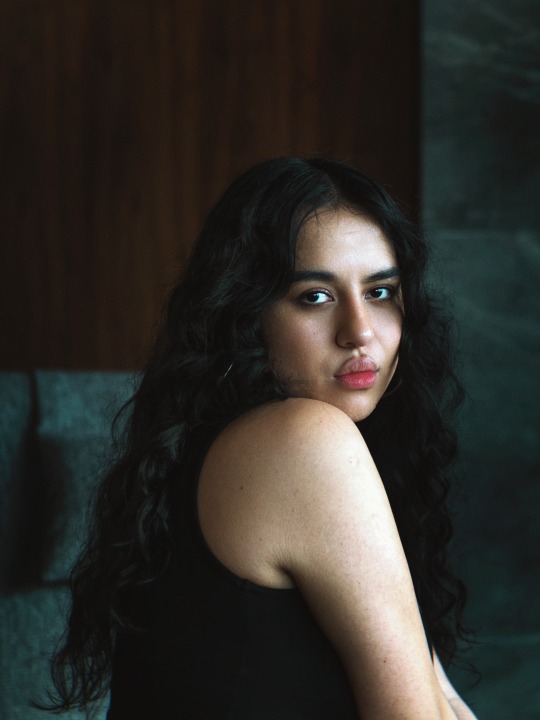
M: Can you tell us a bit about the title of your collection?
T: Poukahangatus is a transliteration of Pocahontas, articulated in Te Reo Maori phonetics. It doesn’t have an actual or complete meaning in Maori, but broken down, ‘pou’ means a pillar, a column, a totem, and ‘kaha’ means strength or bravery, and I like those meanings being present in the title for the collection.
The title is also lifted from the opening essay, ‘Poukahangatus: An Essay about Indigenous Hair Do’s and Don’ts’ and just as the essay explores, I think as a title, Poukahangatus suggests themes of indigenous representation, appropriation, story sovereignty and reclamation, which are recurring and the undercurrent of the collection.
M: This was your debut--what was it like shaping it, and what have you worked on since?
T: I wrote Poukahangatus while I was studying towards my MFA at the International Institute of Modern Letters, so it was shaped through workshops, supervision and a year of concentrated study which was all super helpful to both the book's development, and my own development as a writer. It was an intense but very rewarding experience — it was the first time I had ever explored my culture, my family, the history and impact of colonization in my writing and in New Zealand at the time, there was a bit of a gap in our literature that held both Te Ao Maori (the maori world) and the modern, globalized world of pop culture and the internet, so writing into that space was very fertile, but in part, sort of vulnerable too.
Since then, I wrote a second collection Rangikura, which will also be published by Knopf at a later date. It’s similar to Poukahangatus with its themes of family and colonization, but its parameters are a little tighter, and the intensity turned up — it has an undercurrent of climate change urgency; exploring the relationship between the desecration of the earth and desecration of indigenous women. I’m currently also starting a third collection, but it’s taking its time to reveal itself.
M: There's a range of forms in your first collection. Can you talk a bit about the prose poems that anchor the opening and appear throughout?
T: I’m interested in prose poems because I am interested in storytelling. I write poetry of course, but I also consider my poems to be, and want my poems to serve as, a form of indigenous storytelling; a way to capture and articulate our indigenous knowledge and experiences, and pass them along through generations.
I guess I like how prose poems invite density, generosity, and exploration while also offering the visual cue or expectation that there might be a narrative drive or a story. Many of the prose poems in Poukahangatus have a narrative drive or tell stories. For example, ‘Tangi in The King Country’ is a series of prose poems that tell the story of two small children returning to their marae or ancestral lands for the first time. In another poem titled ‘Pania’ a relationship between an exotic dancer and her client is told over three blocks of prose, which also draws on the traditional myth of Pania of The Reef, a sea maiden from the Ngati Kahungungu tribe of Aotearoa. It’s important to me as a writer to share the stories of my people, and prose poems are a functional way to do this. I like playing with dense blocks of text, but still working the language enough to make it feel light and sing like poetry.
M: Are there any other books or works of art with which you feel your work is in conversation?
T: I’m not sure if they're in conversation with, but the books that spoke to me as I was writing Poukahangatus, and in turn helped me to find my voice and speak with courage and confidence were Citizen by Claudia Rankine, Teaching my Mother How to Give Birth by Warsan Shire and Fale Aitu by Tusiata Avia. They sort of formed the atmosphere I wanted to write into, these passionate wahine writing about power and ancestry with truth and reclamation
3 notes
·
View notes
Photo
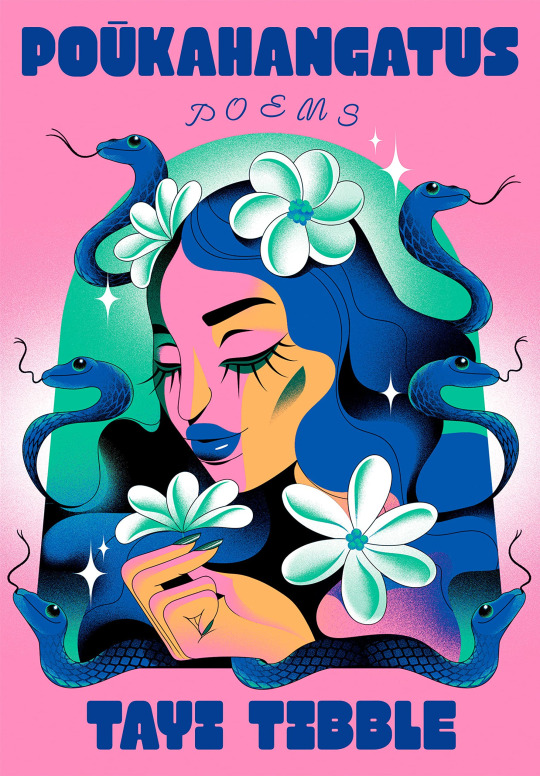
Poūkahangatus: Poems
By Tayi Tibble.
Design by Linda Huang.
5 notes
·
View notes
Text
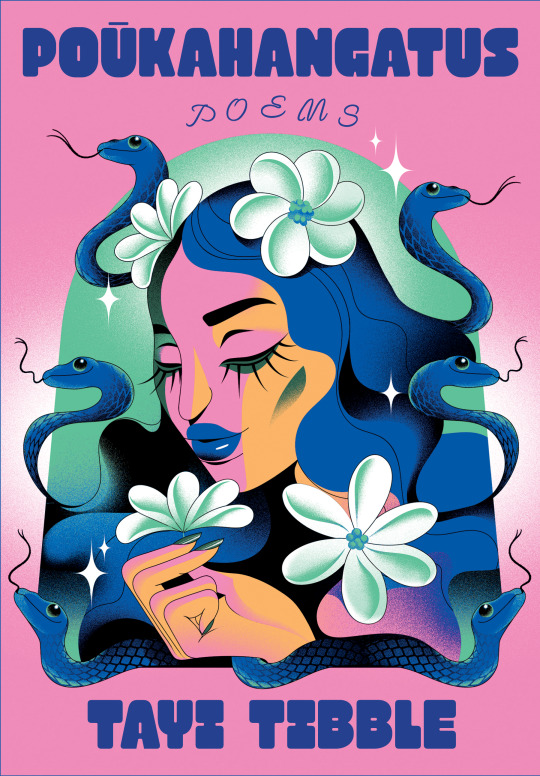
Title: Poukahangatus | Author: Tayi Tibble | Publisher: Knopf Publishing Group (2022)
0 notes
Text
“We drink your grandad's vodka /
from 1955.
It goes down smooth and terrible /
and suddenly we are alight
and dancing with phantom photocopies /
of our fathers.
I wish we could have watched them /
fall in love
with our mothers. /
All we have ever known
is the feeling of somebody leaving.”
—Tayi Tibble, excerpt from “Christmas” in Poūkahangatus
0 notes
Note
1 4 11?
1. favourite place in your country?
I haven't been to a lot of places in my country. But I love the beaches!!
Paraparaumu and Waikanae are pretty nice, probably because of the beaches. I've got to Paraparaumu beach a few times and a couple of years ago I went to this camp at Waikanae- it happened twice and both times on that camp we took a late night walk down to the beach. Sure, maybe we had to climb over some fences by torchlight but it was fun.
Manakau is nostalgic (not to be confused with Manukau), I used to visit a lot as a kid.
4. favourite dish specific for your country?
I love a good pavlova
11. favourite native writer/poet?
Oh oh oh oh oh I have so many writers and poets I love from Aotearoa I would gladly give recommendations. I've made a post on it before and, understandably, it didn't get any attention. (I'm going to find and reblog it)
I love Chris Tse (current poet laureate, I believe), Tayi Tibble, and essa may ranapiri
I haven't read a lot of fiction by kiwi authors. I. S. Belle is on my radar (Zombabe was I think her first novel? And I recently bought Honeyblood which is sapphic vampires so).
Then there's Thorn Boy/Ship of Horrors/Playful Anarchy/The Cure for Gravity/Scathing/Starborough which are anthologies written by my friends plus Spores is published in Ship of Horrors but that is completely biased for me to say
I'm still going slightly off topic but Out Here: an anthology of Takatāpui and LGBTQIA+ writers from Aotearoa is one of my favourite anthologies, and Overcom/Overcommunicate and Bad Apple are my favourite magazines.
Also, me /j
#lohst.txt#ask tag#theabyssgazesalsointoyou#Maybe I'll just remake my post on Aotearoa writers...#some poetry collections i didnt mention in this post:#hera lindsay bird#meat lovers by rebecca hawkes#biter by claudia jardine#killer rack by sylvan spring#always italicise how to write while colonised by alice te punga somerville#transposium by dani yourukova
4 notes
·
View notes
Text
(PDF Download) Poukahangatus: Poems - Tayi Tibble
Download Or Read PDF Poukahangatus: Poems - Tayi Tibble Free Full Pages Online With Audiobook.
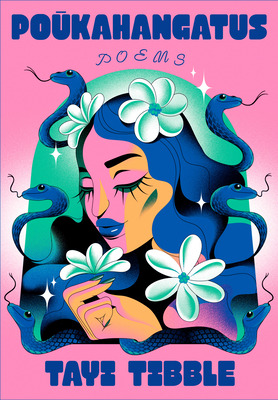
[*] Download PDF Here => Poukahangatus: Poems
[*] Read PDF Here => Poukahangatus: Poems
The American debut of an acclaimed young poet as she explores her identity as a twenty-first-century Indigenous woman. Poem by poem, Tibble carves out a bold new way of engaging history, of straddling modernity and ancestry, desire and exploitation.Intimate, moving, virtuosic, and hilarious, Tayi Tibble is one of the most exciting new voices in poetry today. In Po?kahangatus (pronounced "Pocahontas"), her debut volume, Tibble challenges a dazzling array of mythologies--Greek, M?ori, feminist, kiwi--peeling them apart, respinning them in modern terms. Her poems move from rhythmic discussions of the Kardashians, sugar daddies, and Twilight to exquisite renderings of the natural world and precise emotions ("The lump in her throat swelled like a sea that threatened to take him from her, and she had to swallow hard"). Tibble is also a master narrator of teenage womanhood, its exhilarating highs and devastating lows; her high-camp aesthetics correlate to the overflowing beauty, irony, and
0 notes
Text
(PDF/ePub) Poukahangatus: Poems - Tayi Tibble
Download Or Read PDF Poukahangatus: Poems - Tayi Tibble Free Full Pages Online With Audiobook.
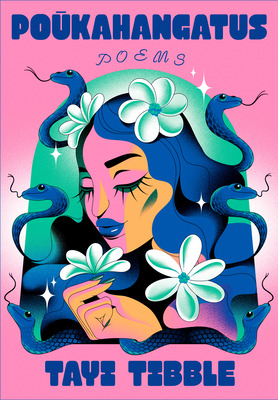
[*] Download PDF Visit Here => https://forsharedpdf.site/59382078
[*] Read PDF Visit Here => https://forsharedpdf.site/59382078
The American debut of an acclaimed young poet as she explores her identity as a twenty-first-century Indigenous woman. Poem by poem, Tibble carves out a bold new way of engaging history, of straddling modernity and ancestry, desire and exploitation.Intimate, moving, virtuosic, and hilarious, Tayi Tibble is one of the most exciting new voices in poetry today. In Po?kahangatus (pronounced "Pocahontas"), her debut volume, Tibble challenges a dazzling array of mythologies--Greek, M?ori, feminist, kiwi--peeling them apart, respinning them in modern terms. Her poems move from rhythmic discussions of the Kardashians, sugar daddies, and Twilight to exquisite renderings of the natural world and precise emotions ("The lump in her throat swelled like a sea that threatened to take him from her, and she had to swallow hard"). Tibble is also a master narrator of teenage womanhood, its exhilarating highs and devastating lows; her high-camp aesthetics correlate to the overflowing beauty, irony, and
0 notes
Text
On an early spring night in Manhattan last year, the Texan-born comedian, poet, and actor Catherine Cohen attended a party where the Māori poet Tayi Tibble was in attendance, visiting all the way from New Zealand. After hearing Tayi read a piece from her book Poūkahangatus, Catherine suggested she come share her work at Club Cumming downtown, where Cat was hosting a weekly, eclectic “Cabernet Caberet.” Though they’d only just met, these two poets from opposite sides of the globe had been in dialogue on the page all along.
wtn boys
by Tayi Tibble
soft wellington boys in six hundred
dollar leather want to send me their poetry
& tie me to their beds so I tell them I like their
fathers instead & listen to their aluminium skulls
crack like coke cans and thunder.
road trip poem #17
by Catherine Cohen
I’m jealous of everyone
and wouldn’t change a thing
every time we have sex I tell you
it’s one for the record books
and you say something can’t be special
if everything is. boys love drumming on stuff
boys love taking their shirt off with one hand
oh my god experience
whatever pleasure you can in this life
for example I’m at mcdonald’s right now
. .
More on these books and authors:
Learn more about Poūkahangatus by Tayi Tibble and follow her @paniaofthekeef on Instagram and Twitter.
Learn more about God I Feel Modern Tonight by Catherine Cohen and follow her @catccohen on Instagram.
See Catherine Cohen’s Netflix special, “The Twist...? She’s Gorgeous,” which integrates poetry with comedy, streaming here.
Visit our Tumblr to peruse poems, audio recordings, and broadsides in the Knopf poem-a-day series.
To share the poem-a-day experience with friends, pass along this link.
#cohenaudio#tibbleaudio#poetry#knopf#books#poem-a-day#knopf poetry#national poetry month#poetry month#knopfpoetry#poem#catherine cohen#god i feel modern tonight#tayi tibble#poukahangatus
14 notes
·
View notes
Text
He ran his tongue over her bruised knees and she was immediately overwhelmed by the intimacy between skin and bone, by the feeling of his wet front teeth, by the wetness of her purple and yellow trauma swelling just beneath the surface. It was always there, an invisible pollution, but finally it had risen and—dear God—somebody wanted to kiss it. Sometimes her body was a swimming pool full of dead bees and foliage, and sometimes she liked that better. It kept the delicate boys away. When she was little and lived by the sea, she swam a lot and was fearless with her body. She let herself be thrashed and turned about by wave after wave, this way and that way. Her grandmother always said Never turn your back on the ocean, because you never knew what might be coming in. She used to think about sharks and stingrays, then tidal waves, then she thought about a horizon full of big white sails. Still, she always felt safe in the water, and she welcomed the invasion.
— Tayi Tibble, from "Pania," Poūkahangatus
340 notes
·
View notes
Photo
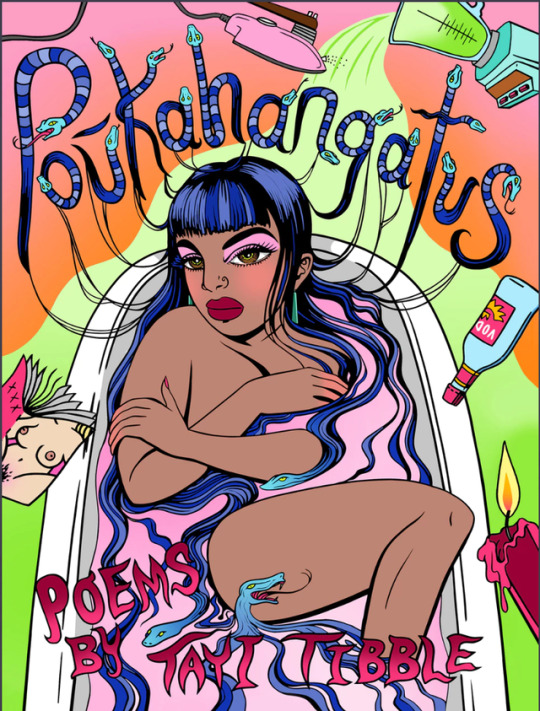
‘Poūkahangatus is a hybridised word of my own invention, phonetically mimicking ‘Pocahontas’. It has no literal Māori translation, though ‘pou’ in te reo Māori means pillar or pole, and ‘kaha’ means power or strength.’ - Tayi Tibble
In the movie, Pocahontas remains in America. In reality, she became an important figure in relations between Native Americans and colonisers, which lead to her leaving the country and dying far from home.
In the book, she appears in the first poem – ‘An essay on indiginous hair dos and don’ts.’
In 1995 I was born and Walt Disney’s Animated Classic Pocahontas was released. Have you ever heard a wolf cry to the blue corn moon? Mum has. I howled when my mother told me Pocahontas was real but went with John Smith to England and got a disease and died. Representation is important.
22 notes
·
View notes
Text
Poukahangatus by Tayi Tibble | Book Review
Poukahangatus by Tayi Tibble | Book Review
@netgalley @simonenoronha @AAKnopf @paniaofthekeef #bookreview #bookblog #booktwitter #netgalley #poetry
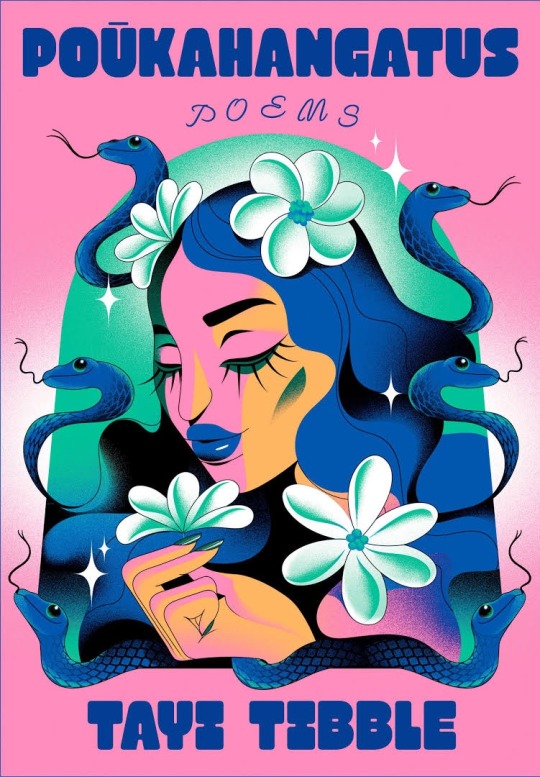
View On WordPress
#arc#blogger#book blog#book blogger#book post#book review#book worm#netgalley#poetry#poetry blog#Poukahangatus#reader#Review#tayi Tibble
0 notes
Text
A Response to 'Who Am I?'
That poem was written in 2018.
A suggested task from one of my lectures
That was never revisited.
But I wrote it anyway.
Supposedly inspired by Tayi Tibble
And her poem
‘Identity Politics.’
A poem I wrote when I was eighteen years old.
Fresh out of high school.
So, the poem made sense.
Who knows who they are in high school anyway?
But it’s 2022.
I am 22 years old.
And the poem is still updating with my age.
18, 19, 20, 21, 22.
And the poem will probably keep updating,
Aging alongside me.
When the day comes,
When I figure out who I am,
The poem will cease to age,
Frozen in time.
And I will have the answer.
#poetry#poems#poets on tumblr#writeblr#new zealand#writersociety#tayi tibble#lara rambles#my poetry#spilled ink
1 note
·
View note
Note
1, 3, and 5?
1 if someone wanted to really understand you, what would they read, watch, and listen to?
Oh, fuck...
Read fantasy books, falling in love with the side characters. The ones who seem weak or weird but are so much more.
All the Bright Places by Jennifer Niven
Read poetry: Not Understood by Thomas Bracken, The Road Not Taken by Robert Frost, Sappho, Coming to Paradise by Kapka Kassabova, Slyvia Plath, The Maori Jesus by James K Baxter, Hera Lindsay Bird, Tayi Tibble
Watch late 90's to early 2000's kids TV shows. Shortland Street from the years 2005 to 2017. Plays and musicals. Disney movies.
Listen to New Zealand kids songs. Christian music and queer music. Bare: A Pop Opera
3 list your fandoms and one character from each that you identify with.
Percy Jackson: Will Solace//Harry Potter: Luna Lovegood//Be More Chill: Brooke Lohst//Bare: A Pop Opera: Nadia McConnell
That's off the top of my head
5 do you think of yourself as a human being or a human doing? do you identify yourself by the things you do?
I don't know. Human being, I think. This definitely needs more thought
2 notes
·
View notes
Photo

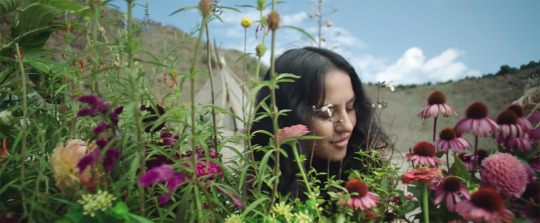
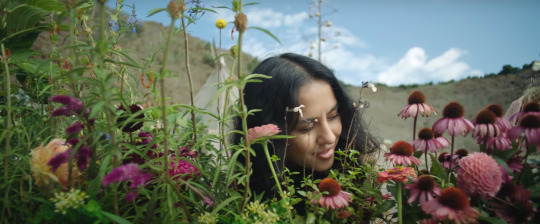
People have been fascinated by the woman with the flowers who appears for about a second (2:23-4) in the “solar power” video: I’ve seen speculation that she’s farther from the main location of the video (because there don’t seem to be any flowers on the beach) and therefore might be hinting at what the next video could be like...
Well, thanks to this great article about who’s who in the video, I know this is Wellington-based poet Tayi Tibble. I also know that she’s just published her second book of poems, Rangikura, a day before “Solar Power” dropped. This is the book’s description:
These poems live in the space between the end of the world and a new day. They ask us to think about our relationship to desire and exploitation. They are both nostalgic for, and exhausted by, the pursuit of an endless summer.
And this feels so poignant and appropriate that I can’t help but think, maybe her poems will be on the album in some way?
0 notes